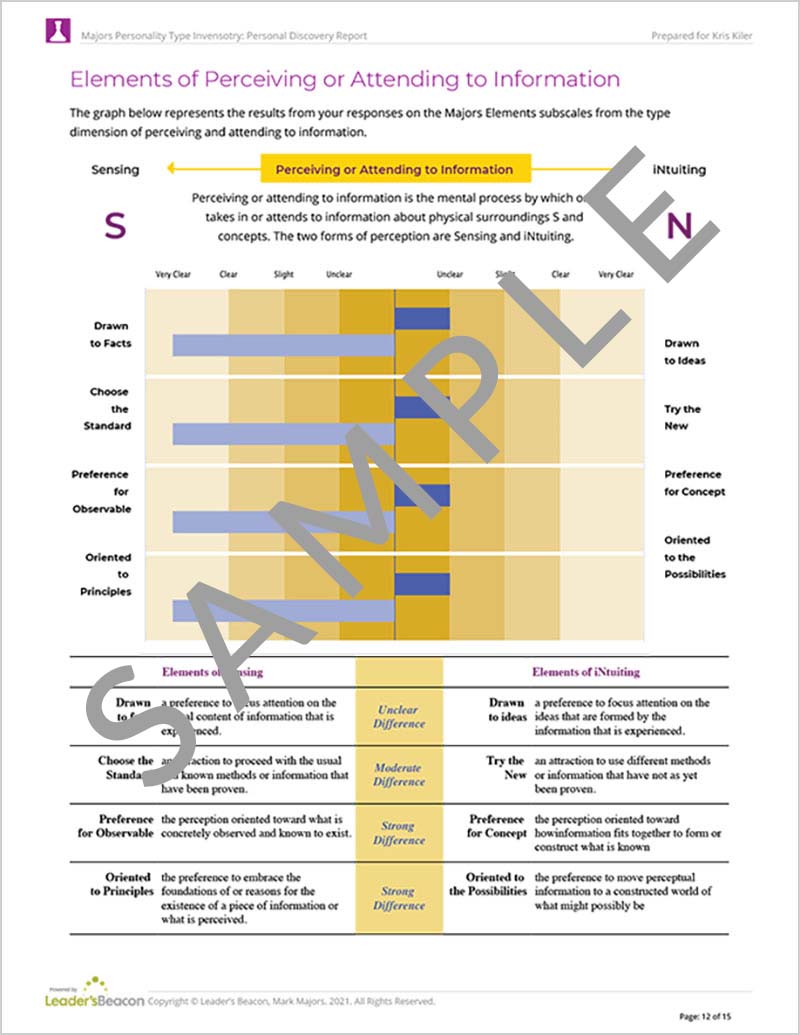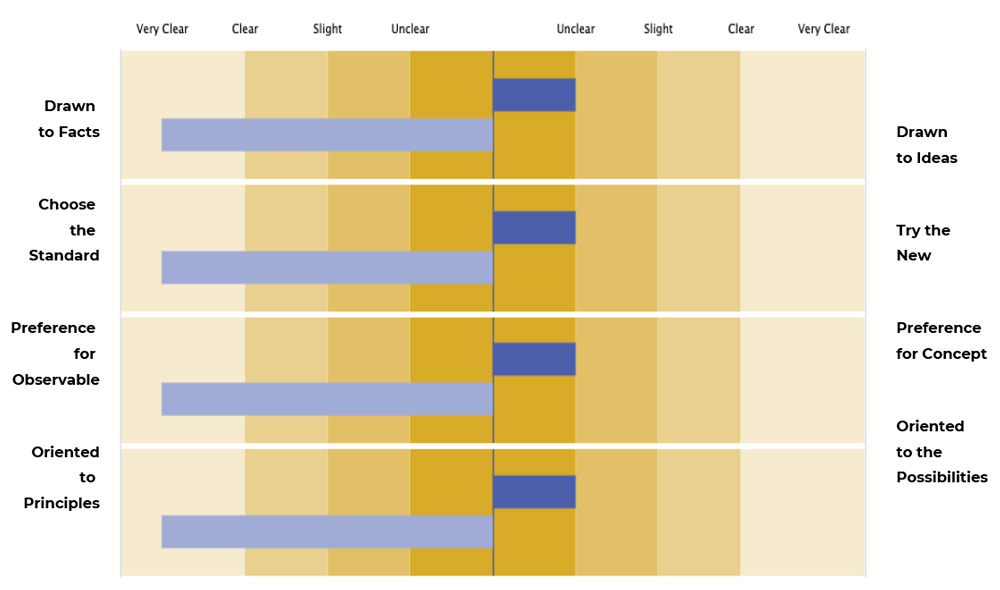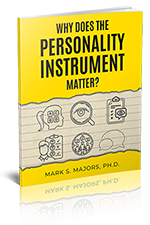The Majors Elements™ does not use a forced choice format for item responses. Instead, the Majors Elements™ uses levels of similarity to provide clarity of results and increased precision. The report provides results on the dichotomies of Energy acquisition and distribution, Extraversion (external) and Introversion (internal); Perceiving or attending to information, Sensing and iNtuiting; Deciding or making judgments, Thinking and Feeling; Orientation to living, Judgment and Perception. The reported result for the individual’s 16-type indication is given, as well as results on the 32 Elements sub-scales, which illuminate personality differences within the dichotomy or type. In addition, the all new “Elements of Personality Formation™” statements are included in the report which will help you or your clients understand some of the complex ways that they interact with others, and respond to situations.
Majors Elements of Personality
The Majors Elements™
The instrument contains three main parts that are used to operationalize Jung’s theory of psychological types. Not only does it produce the four-letter personality code using the innovations found in the Majors PTI™, it also identifies the different ways that individuals adapt to or compensate for circumstances. Further it provides scores for the level of development, access and usability for the 8 Jungian menial functions.
These different ways indicate levels of personality development (formation). The Majors Elements is an all-electronic assessment containing 127 items that provide results in both a detailed client profile and a professional report.
Business Applications
The Majors PT-Elements™ can be used for the business applications listed below.
- Employee Development
- Leadership Development
- Performance Coaching / Improvement
- Team Building
- Executive Coaching
- Conflict Resolution



Elements of Type/Sub-scales: Measurement Features
The Elements of Type/Sub-scales are based upon 104 statements (52 dichotomous items) that solicit the individual’s self-reported similarity with descriptions of behaviors and attitudes.

Providing results for each scale of an Element of Type dichotomy allows the individual to discover how he or she is expressing that particular preference dichotomy dimension in his or her own individual way.
Developed by Mark Majors, Ph.D.
Key Features:
- Less expensive than other psychological type instruments.
- Shorter, but more accurate, instrument with only 127 Questions
- Differential Intensity Weighting – this allows the individual to both choose the response that is most natural for them and rate how similar the choice is to them.
- The Neutral Response – the use of a neutral response removes the measurement error that is found in other forced choice psychological type assessments.
- The Type Precision Module – is a form of Computer Adaptive Assessment that adapts the scoring method based upon the individual’s responses.
Restricted Assessment
The Majors Elements™ requires training to administer professionally. People who have a degree in psychology or counseling, and have had psychometric coursework are qualified to use the Majors Elements™. People who have been trained to use the MBTI® instrument, Majors PTI™, Golden™ Personality Type Profiler, or other instruments where the coursework included training in psychometrics and test interpretation are qualified to use the Majors Elements™.
Special Report
Written by Mark Majors, PhD, developer of the Majors Assessments
Myers-Briggs Type Indicator, Myers Briggs, MBTI, the MBTI logo, Step I, Step II, Step III and Introduction to Type are trademarks or registered trademarks of The Myers & Briggs Foundation in the United States and other countries. Elevate is a registered trademark of The Myers-Briggs Company.

